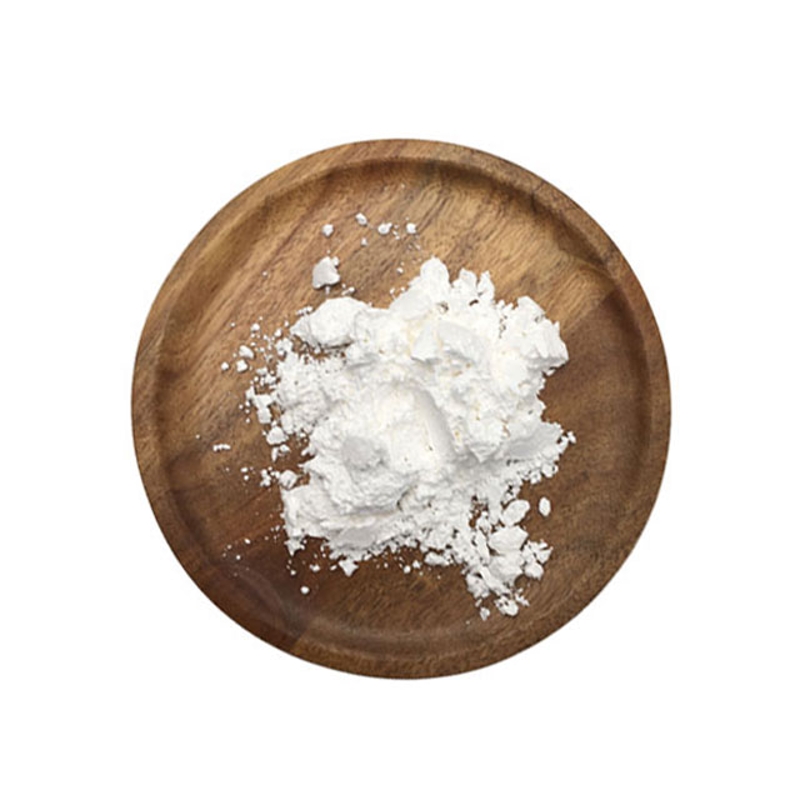-
Categories
-
Pharmaceutical Intermediates
-
Active Pharmaceutical Ingredients
-
Food Additives
- Industrial Coatings
- Agrochemicals
- Dyes and Pigments
- Surfactant
- Flavors and Fragrances
- Chemical Reagents
- Catalyst and Auxiliary
- Natural Products
- Inorganic Chemistry
-
Organic Chemistry
-
Biochemical Engineering
- Analytical Chemistry
- Cosmetic Ingredient
-
Pharmaceutical Intermediates
Promotion
ECHEMI Mall
Wholesale
Weekly Price
Exhibition
News
-
Trade Service
Infected with the new crown or affects intelligence
Infected with the new crown or affects intelligenceSource: EClinical Medicine
Source: EClinical Medicine Source: EClinical MedicineOn July 22, a study published in EClinical Medicine found that after recovery, patients with new crowns are more likely to have low scores on intelligence tests and are likely to have cognitive deficits.
Among them, the new crown virus that has been hospitalized and used a ventilator People who are infected have the greatest decline in their intelligence
.
Researchers conducted intelligence tests on 81,337 people (including about 13,000 people infected with the new crown virus).
After controlling for factors such as age, gender, mother tongue, and education level, they found that compared with people who were not infected with the virus, those who had been infected with the new crown virus People perform the worst in tasks that require reasoning, planning, and problem-solving
.
Researchers said that the test results are consistent with reports of long-term infections of the new coronavirus: "brain fog" in the patient's brain, inattention, difficulty in finding the correct words and other common phenomena
.
However, the current research results are only preliminary conclusions and need to be corroborated by brain imaging data
The severity of symptoms in patients with new crowns is related to epithelial cells in the nasopharyngeal area
The severity of symptoms in patients with new crowns is related to epithelial cells in the nasopharyngeal areaSource: Cell
Source: Cell Source: CellOn July 22, in a study published in Cell, researchers collected nasal swab samples from 35 adult patients with new coronary pneumonia, and used 23 healthy people as controls.
They found that they were infected with the new crown.
After the virus, the epithelial cells of the patient's nasopharyngeal area will undergo significant changes
.
The number of mucus secreting cells and immature ciliated cells will increase, while the number of mature ciliated cells that clean up the respiratory tract will decrease
.
In addition, in mild to moderate patients, more genes related to antiviral response in the epithelial cells of the nasopharyngeal area will be activated, while the early immune response in the nasopharyngeal area of severe patients is slower
Kexing vaccine's third shot data released, neutralizing antibody titer can increase 3-5 times
Kexing vaccine's third shot data released, neutralizing antibody titer can increase 3-5 timesSource: medRxiv
Source: medRxiv Source: medRxivOn July 25, a study published on the preprint platform medRxiv released the interim results of the Phase II clinical trial of Kexing's new crown vaccine Kellyford booster (third dose)
.
The results showed that whether it was the second or third dose, the positive rate of antibodies 28 days after vaccination was over 90%; the neutralizing antibody titers dropped significantly after the subjects completed the two injections 6 months after vaccination, and the third vaccination The neutralizing antibody titer at 28 days after the dose was increased by 3-5 times compared with the neutralizing antibody titer at 28 days after the second dose; the longer the interval between the third dose and the second dose, the higher the increase
.
Since the original strain is used, no conclusion can be drawn on the effect of strengthening the mutant strain; in addition, the elderly over 60 years old were not included in the study
.
Chen Wei's team completes phase I clinical trial of new crown vaccine for nebulized inhalation
Chen Wei's team completes phase I clinical trial of new crown vaccine for nebulized inhalationSource: the Lancet Infectious Diseases
Source: the Lancet Infectious Diseases Source: the Lancet Infectious DiseasesOn July 26, in a paper published in "The Lancet Infectious Diseases", the first phase of aerosol inhalation recombinant new crown vaccine (adenovirus vector) developed by the academician Chen Wei’s team was released.
Clinical trial data
.
This is the world's first publicly published results of the mucosal immunity clinical trial of the new crown vaccine
The results show that the recombinant new crown vaccine for nebulized inhalation has good safety, tolerability and immunogenicity
.
One dose of aerosolized inhalation vaccine requires only one-fifth of the vaccine dose by intramuscular injection, and the level of cellular immune response produced is equivalent to that of intramuscular injection
It is understood that the aerosolized inhalation vaccine is the same as the recombinant new crown vaccine that has been conditionally approved for marketing in terms of preparation formula and production process
.
T cells have no effect on the recovery of primates from acute new coronavirus infections
T cells have no effect on the recovery of primates from acute new coronavirus infectionsSource: mBio
Source: mBio Source: mBioOn July 27, a study published in mBio found that T cells are not important for primates to recover from acute new coronavirus infections
.
After the researchers exhausted the CD4+ and CD8+ T cells of the rhesus monkeys, they were infected with the new coronavirus and collected the rhesus monkey blood, nasal swabs, and bronchoalveolar lavage fluid
.
The infection was repeated six weeks later, and samples were collected again
Sample analysis showed that even if T cells were exhausted, rhesus monkeys still produced strong neutralizing antibodies and developed a good immune memory of the virus
.
This discovery has important implications for the development of second-generation vaccines and therapies
The incidence of new crown infection after 2 doses of BNT162b2 vaccine is 0.
4%
4%
Source: NEJM
Source: NEJM Source: NEJMOn July 28, a study published in the New England Journal of Medicine (NEJM) published the results of a real-world study in Israel, showing that medical staff had a breakthrough infection after being completely vaccinated with the BNT162b2 vaccine (nucleic acid test results after the second dose of vaccine Positive) symptoms are mild or asymptomatic, and the protective efficacy of the vaccine is closely related to the peak titers of neutralizing antibodies in the body
.
During the study period, a total of 11453 medical staff were fully immunized, of which 1497 received nucleic acid testing, 39 cases of breakthrough infection were found, 26 cases (67%) had mild symptoms, 13 cases (33%) were asymptomatic, of which 6 cases were borderline Case
.
14 days after the diagnosis, 31% of the cases reported still had residual symptoms; 6 weeks after the diagnosis, 19% of the patients still reported long-term symptoms of new coronary pneumonia
The incidence of breakthrough infection after 2 doses of BNT162b2 vaccine is only 0.
4%; and most patients have mild or asymptomatic symptoms, but 19% of patients have longer duration of symptoms (>6 weeks)
.
Pfizer announced the effect of the third dose of vaccination, effective against the delta mutant
Pfizer announced the effect of the third dose of vaccination, effective against the delta mutantSource: medRxiv
Source: medRxiv Source: medRxivOn July 29, the performance of the mRNA new crown vaccine jointly developed by Pfizer and BioNTech after the third shot was announced
.
For wild-type viruses and beta variants, compared with the second dose of vaccine, after the third dose of vaccine, the neutralizing antibody titer in the human body will increase by 5-8 times and 15-21 times
.
For the currently widespread delta variant, after the third dose of vaccine, the neutralizing antibody titers in adults aged 18-55 and elderly people aged 65-80 increased by 5 times and 11 times, respectively
In addition, data published on the preprint website medRxiv on July 28 showed that the protection rate of the BNT162b2 vaccine dropped from 96% to 84% six months after vaccination, and the overall effect of preventing new coronary pneumonia within six months was 91%.
Within 18 months after vaccination, it will be below the 50% vaccine efficacy benchmark, and finally a third dose is needed to curb the infection
.
According to data released by the Israeli Ministry of Health a few days ago, affected by the delta variant, the effective rate of Pfizer's new crown vaccine in Israel to prevent new crown infections in Israel has dropped to 39%, and the effective rate of preventing symptomatic infections is 41%, preventing the development of infected persons.
The effective rate of treatment upon admission is 88%, and the effective rate of preventing severe illness is 91.
4%
.
Antibody levels induced by mRNA vaccines are correlated with COVID-19 protection in non-human primates
Antibody levels induced by mRNA vaccines are correlated with COVID-19 protection in non-human primatesSource: Science
Source: Science Source: ScienceOn July 29, an article published in Science showed that the level of antibodies induced by Moderna's mRNA-1273 vaccine is linked to the protection of the new crown, which is of great significance for understanding the effectiveness of the vaccine
.
In the study, non-human primates received no vaccine or received a series of different doses of vaccine (0.
3 μg~10 μg)
.
Experimental results show that regardless of the dose, the vaccine can provoke a strong antibody response, and the level of the response is dose-dependent
.
In the future, researchers will continue to evaluate the staying power of these antibody responses against the new crown variants
.







